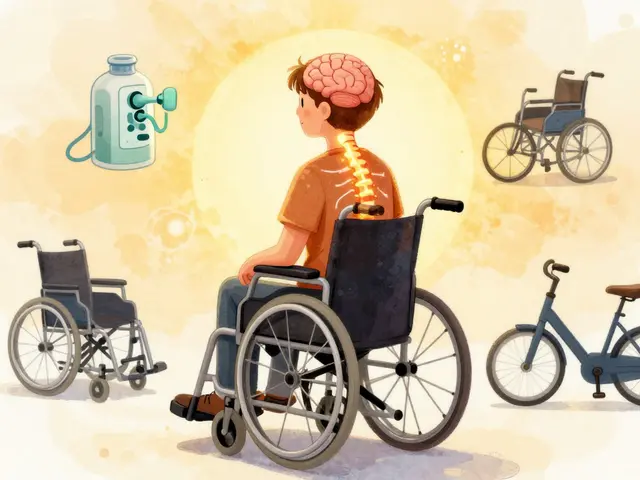Atenolol — what it does and how to use it safely
Atenolol is a beta-1 selective blocker many doctors use for high blood pressure, chest pain (angina), and some fast heart rhythms. It slows your heart rate and lowers blood pressure, which reduces the heart's workload. People often prefer it because it’s generic, cheap, and taken once a day in most cases. Still, it’s not right for everyone, so a few practical things matter before you start.
How to take atenolol
Typical starting doses are 25–50 mg once daily; many patients end up on 50–100 mg daily depending on response. If you have kidney problems your doctor will lower the dose because atenolol leaves the body mainly through the kidneys. Take it at the same time each day — morning is common — and swallow whole with water. If you accidentally miss a dose, take it as soon as you remember unless it’s close to the next dose; don’t double up.
Side effects, risks, and what to watch for
Common side effects include tiredness, slow pulse, dizziness, cold hands or feet, and sometimes sleep changes. If your pulse drops below about 50 beats per minute or you feel faint, call your doctor. People with asthma or severe COPD often avoid atenolol because even selective beta-1 blockers can tighten airways in some people. If you have diabetes, atenolol can hide the fast heartbeat that signals low blood sugar — watch glucose levels more closely.
Important drug interactions: combining atenolol with non-dihydropyridine calcium channel blockers (verapamil, diltiazem) can cause dangerously slow heart rate or low blood pressure. NSAIDs like ibuprofen may blunt its blood-pressure-lowering effects. Tell your prescriber about all medicines you take, including supplements and over-the-counter drugs.
Stop it carefully. Don’t suddenly stop atenolol if you’ve been taking it for weeks or months. Abruptly stopping can cause chest pain or a rebound increase in blood pressure. Your doctor will usually taper the dose over days to weeks.
Monitoring is simple: regularly check blood pressure and heart rate. Your provider may also check kidney function, especially if you’re older or have known kidney disease. Pregnant people are generally steered away from atenolol because it can affect fetal growth — discuss safer options with your clinician.
Buying meds online? Stick to licensed pharmacies and avoid sites that sell without a prescription. If you ever feel unusual chest pain, fainting, severe shortness of breath, or extreme dizziness after starting atenolol, seek medical care right away. For routine questions — dose tweaks, side effects, or combining with other drugs — your prescriber or pharmacist can give advice tailored to you.
13
Atenolol and Swallowing Difficulties: Is It a Side Effect?
I recently came across some information regarding Atenolol, a commonly prescribed medication for high blood pressure, and its potential link to swallowing difficulties. It got me thinking, could this be a side effect that many are unaware of? After doing some research, it seems that swallowing difficulties are not listed as a common side effect of Atenolol, but some cases have been reported. It's important to monitor any changes in your health while taking medication and communicate with your healthcare provider. If you or someone you know is experiencing swallowing difficulties while on Atenolol, it may be worth discussing with a medical professional.
Latest Posts
Popular Posts
-
 Spinal Cord Injury: Understanding Function Loss, Rehabilitation, and Assistive Devices
Spinal Cord Injury: Understanding Function Loss, Rehabilitation, and Assistive Devices
-
 Duloxetine and Liver Health: What You Need to Know About Hepatotoxicity Risk
Duloxetine and Liver Health: What You Need to Know About Hepatotoxicity Risk
-
 Magnesium Supplements and Osteoporosis Medications: What You Need to Know About Timing
Magnesium Supplements and Osteoporosis Medications: What You Need to Know About Timing
-
 Stinging Insect Allergy: What Venom Immunotherapy Really Does for You
Stinging Insect Allergy: What Venom Immunotherapy Really Does for You
-
 Enteral Feeding Tube Medication Safety: Compatibility and Flushing Protocols Explained
Enteral Feeding Tube Medication Safety: Compatibility and Flushing Protocols Explained



